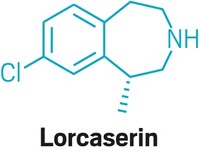Advertisement
Grab your lab coat. Let's get started
Welcome!
Welcome!
Create an account below to get 6 C&EN articles per month, receive newsletters and more - all free.
It seems this is your first time logging in online. Please enter the following information to continue.
As an ACS member you automatically get access to this site. All we need is few more details to create your reading experience.
Not you? Sign in with a different account.
Not you? Sign in with a different account.
ERROR 1
ERROR 1
ERROR 2
ERROR 2
ERROR 2
ERROR 2
ERROR 2
Password and Confirm password must match.
If you have an ACS member number, please enter it here so we can link this account to your membership. (optional)
ERROR 2
ACS values your privacy. By submitting your information, you are gaining access to C&EN and subscribing to our weekly newsletter. We use the information you provide to make your reading experience better, and we will never sell your data to third party members.
Pharmaceuticals
FDA Asks Novartis To Halt U.S. Sales Of Zelnorm
Makers of a Parkinson's treatment also pull their drug from market
by Rick Mullin
April 3, 2007
Novartis says it is complying with a request by the Food & Drug Administration that it suspend U.S. sales of Zelnorm, its irritable bowel syndrome treatment. The agency made the request after a retrospective analysis of clinical trial data indicated a possible link between Zelnorm and incidents of heart attacks and stroke.
FDA approved the drug in 2002. According to the data review, 0.11% of patients taking Zelnorm experienced cardiovascular ischemic events including myocardial infarction, stroke, and unstable angina pectoris, compared with 0.01% of patients treated with a placebo.
Novartis' sales of Zelnorm last year were $488 million in the U.S. and $73 million in the rest of the world. The Swiss firm's shares fell more than 3% on Monday after it cut its 2007 sales forecast to "above 5%" based on its decision to halt sales of the drug. Novartis adjusted the sales forecast for its pharmaceutical division to a "low-to-mid-single digit" percentage.
"Although we have complied with FDA's request and are collaborating with the agency, we continue to believe that Zelnorm provides important benefits for appropriate patients," says Stephen Cunningham, vice president and head of U.S. clinical development and medical affairs at Novartis.
Separately, FDA announced that three manufacturers of pergolide drug products, which are used to treat Parkinson's disease, will voluntarily remove them from the market because of the risk of damage to patients' heart valves. The products involved are Valeant Pharmaceuticals International's Permax and generic versions of the drug manufactured by Par Pharmaceutical and Teva Pharmaceutical Industries.
In 2003 and again in 2006, FDA asked manufacturers to add labels to pergolide packaging warning of possible heart valve damage. The agency notes that alternative therapies are available to treat Parkinson's symptoms such as tremors and slowness of movement.
FDA, which has increased its evaluation of postmarket drug safety, has cited adverse side effects in removing several drugs from the market in recent years. Examples include Pfizer's arthritis drug Bextra and Biogen Idec's multiple sclerosis drug Tysabri, both removed in 2005, and Merck's arthritis drug Vioxx, removed in 2004. Regulators cleared Tysabri to return to the market last year with several restrictions.




Join the conversation
Contact the reporter
Submit a Letter to the Editor for publication
Engage with us on Twitter